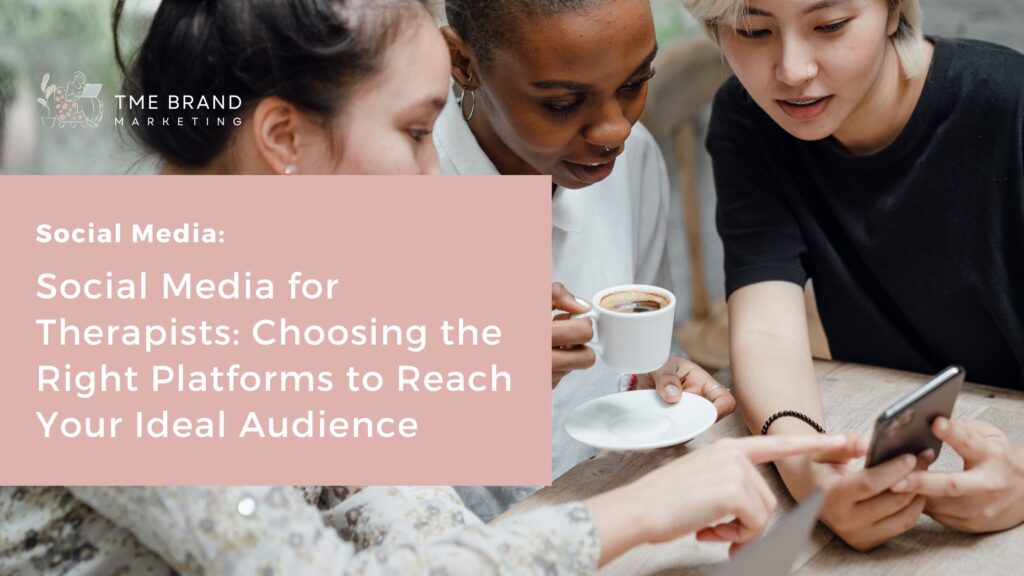
We know that as a therapist, your primary focus is helping your clients navigate life’s challenges. But let’s face it—social media isn’t just a “nice-to-have”; it’s essential to reaching your ideal audience. Whether you’re a solo psychologist or managing a group practice, social media for therapists can help you connect, educate, and grow your client base—if you’re on the right platforms.
So, how do you decide where to focus your efforts? We’re here to help you break it down, platform by platform, to ensure you maximize your online presence without feeling overwhelmed.
Why Social Media Matters for Therapists
Before we dive into specific platforms, let’s take a moment to address why social media for therapists is so impactful. Social media allows you to:
- Build trust: Sharing helpful tips, insights, and resources can position you as an approachable expert in your field.
- Reach new audiences: Platforms like Instagram or TikTok enable you to connect with potential clients who might not have found you otherwise.
- Humanize your brand: Clients want to work with someone they feel connected to. Social media lets you show your personality and values.
But let’s not sugarcoat it. Social media can be a double-edged sword if it’s not handled strategically. That’s where working with a marketing company for psychologists, like TME Brand Marketing, comes in handy. We’ll help you pick the platforms that align with your goals and audience.
Choosing the Right Platform
Not all social media platforms are created equal, and not all of them will suit your practice. Let’s explore the pros and cons of the most popular options.
1. Instagram
Instagram is the go-to platform for visually engaging content, making it a favorite for therapists who want to connect with a younger, visually oriented audience.
Pros:
- Highly visual: Great for sharing infographics, motivational quotes, or short video clips.
- Broad reach: Especially popular among millennials and Gen Z.
- Features like Stories and Reels make it easy to create bite-sized, engaging content.
Cons:
- Time-consuming: Creating high-quality visuals takes effort.
- Algorithm changes can make it harder to reach your followers without consistent posting.
Tip: Share content that’s both educational and relatable. For example, “5 Tips to Manage Holiday Stress” or “Signs You Might Need a Mental Health Day.”
2. Facebook
Facebook remains a solid choice for therapists, particularly if your ideal audience includes older adults or parents seeking support for their families.
Pros:
- Community-building: Facebook Groups allow you to foster a sense of connection.
- Long-form content: Perfect for sharing blog posts or longer updates.
- Advertising options: Highly targeted ads can help you reach specific demographics.
Cons:
- Declining organic reach: You may need to invest in ads to see significant results.
- Younger audiences are moving away from Facebook.
Tip: Use Facebook to drive traffic to your website or blog. This is especially effective if you’ve invested in web design for mental health therapists that encourages visitors to explore your services and book appointments.
3. LinkedIn
If your practice focuses on corporate wellness or professional development, LinkedIn might be your golden ticket.
Pros:
- Professional audience: Great for networking with HR professionals or business leaders.
- Thought leadership: Sharing articles or insights can position you as an expert.
Cons:
- Limited personal content: LinkedIn is more about professionalism than relatability.
- Smaller audience: Not everyone is active on LinkedIn.
Tip: Share articles about workplace mental health trends or burnout prevention. Connect with local businesses to offer workshops or employee assistance programs.
4. TikTok
TikTok is rapidly becoming a powerful tool for reaching younger audiences who are looking for bite-sized, engaging content about mental health.
Pros:
- High engagement: Creative, relatable videos can go viral quickly.
- Younger audience: Ideal for connecting with Gen Z.
Cons:
- Steep learning curve: Creating TikToks can feel intimidating at first.
- Time-consuming: Frequent posting is often necessary to grow your following.
Tip: Don’t be afraid to have fun! Share quick tips, myth-busting videos, or relatable skits about therapy.
5. YouTube
For therapists comfortable with video content, YouTube offers unparalleled opportunities to educate and engage.
Pros:
- Long-form content: Perfect for deep dives into topics like anxiety or trauma recovery.
- Searchability: Videos can rank well in Google searches.
- Evergreen content: Your videos can continue to bring in views long after they’re posted.
Cons:
- High production value: Videos require more time and resources to create.
- Slower growth: Building a subscriber base takes time.
Tip: Focus on answering common questions like “What to Expect in Your First Therapy Session” or “How to Manage Social Anxiety.”
How to Optimize Your Social Media Strategy
No matter which platforms you choose, here are a few best practices to keep in mind:
- Consistency is key: Post regularly to keep your audience engaged. A content calendar can help you stay organized.
- Engage with your audience: Respond to comments and messages to build trust and rapport.
- Collaborate Partner with other therapists or organizations to expand your reach.
- Track your metrics: Use analytics tools to see what’s working and adjust your strategy accordingly.
Need help with your social media?
Social media can feel overwhelming, especially when you’re juggling client sessions, administrative tasks, and life outside of work. That’s where TME Brand Marketing comes in. As a boutique marketing company for psychologists, we specialize in helping mental health professionals like you shine online.
From crafting compelling content to building a cohesive brand voice, we take the guesswork out of social media for therapists. Plus, if you’re revamping your website, we offer web design for mental health therapists that seamlessly integrates your social media platforms for a unified online presence.
Choosing the right social media platforms doesn’t have to be a daunting task. By focusing on where your ideal audience spends their time and creating content that resonates with them, you can turn social media into a powerful tool for growth.
Ready to take your social media strategy to the next level? TME Brand Marketing is here to help you every step of the way. Let’s make your online presence as impactful as the work you do in your practice.

